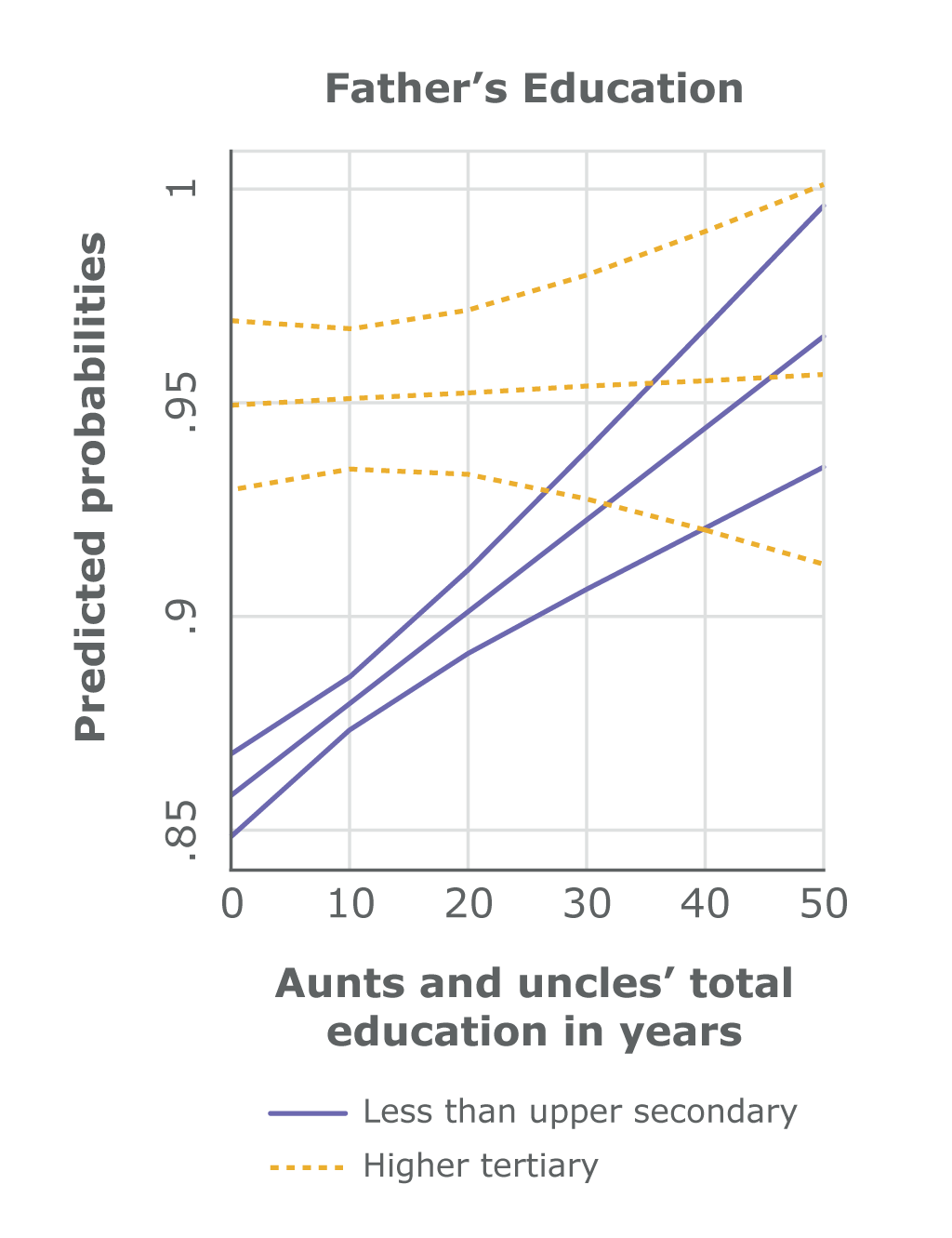Drawing conclusions of what promotes intergenerational mobility, thus promoting more equal societies, has turned out to be rather difficult. In our edited volume, we argue that an important factor that previous studies have overlooked is compensation. This means that when resources are lacking or have suddenly been lost, some attempts are made to access other resources. These attempts may come from the children, the parents themselves, or other persons nearby, such as grandparents, other extended or new family members, or even neighbours. Compensatory processes may be the reason why children who lose parental resources due to divorce or death are not always disadvantaged by this loss in the long term.
Further, compensation can also be provided by institutions. Most welfare state policies compensate for the losses associated with different social risks during the life course, as they have been designed to do. However, from an intergenerational perspective, their influence tends to be limited to improving the wellbeing of families and does not extend to reducing inequalities between children coming from different kinds of families.
In this book, we examine the interplay of resources from three different sources: the immediate family, the extended family and societal institutions. The main findings of the book are that the influence of parental resources is mainly accumulative; in other words, compensation within families does not occur often. Conversely, we found consistent evidence of a compensatory effect of extended family members and institutions.
Evidence of compensation from the extended family was found in all the three countries where it was studied: Finland, Norway and the United States. Having well-educated or wealthy aunts and uncles increases the educational achievement of children with disadvantaged parents the most, thus compensating for low immediate family resources. Figure 1 shows this in the case of Finland: A more educated pool of aunts and uncles, measured by their total number of years of post-compulsory education, effectively reduces the gap between children of compulsory and tertiary educated fathers in upper secondary graduation.

Figure 1. Predicted probabilities of completing a post-compulsory qualification for the interaction between father’s education and aunts and uncles’ total education in (post-compulsory) years, with 95% confidence intervals (source: Lehti & Erola in Erola & Kilpi-Jakonen (eds) 2017).
However, the equalizing effect is limited by two factors. Firstly, the most disadvantaged children rarely have access to the most advantaged extended family members. Secondly, when examining high-status outcomes, such as college completion in the United States, the influence of aunts and uncles tends to multiply that of parents, meaning that it is the most advantaged children who benefit the most from having high status aunts and uncles.
Educational institutions in particular seem to have a relatively strong compensatory influence. For instance, making compulsory education last until a later age is found to be positively associated with increasing intergenerational mobility in Europe, while family policy changes related to maternity leave and family allowances tend to have only a limited impact on intergenerational attainment. The influence of educational policies also extends to later educational participation; more widespread tertiary education in Europe improves equality of opportunity.
The role of institutions in increasing equality of opportunity is rather complex. Although universal policies aiming at everyone’s wellbeing may be politically easy to implement, in the end they may end up increasing the advantages of the already well-off families. This is because families who are already privileged tend to be particularly well-equipped to take advantage of any policy changes. The most effective policies appear to be those that improve the chances of upward mobility from the bottom of the strata and simultaneously increase downward mobility from the top.
Authors:
Jani Erola, Professor, Department of Social Research, University of Turku, Finland
Elina Kilpi-Jakonen, Senior Research Fellow, Department of Social Research, University of Turku, Finland
More about the topic:
Jani Erola & Elina Kilpi-Jakonen (eds.) 2017. Social Inequality Across the Generations: The Role of Compensation and Multiplication in Resource Accumulation. Cheltenham, UK and Northampton, MA, USA: Edward Elgar Publishing.
Acknowledgement
This research was funded by the European Research Council (ERC-2013-CoG-617965).